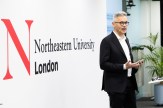Business, government and education leaders share vision for the future during Northeastern’s Global Leadership Summit in Singapore
Northeastern President Joseph Aoun welcomed U.S. Ambassador to Singapore Jonathan Kaplan, Indonesia’s Tourism Minister Sandiaga Uno and others to discuss topics ranging from entrepreneurship to the Asian music industry.
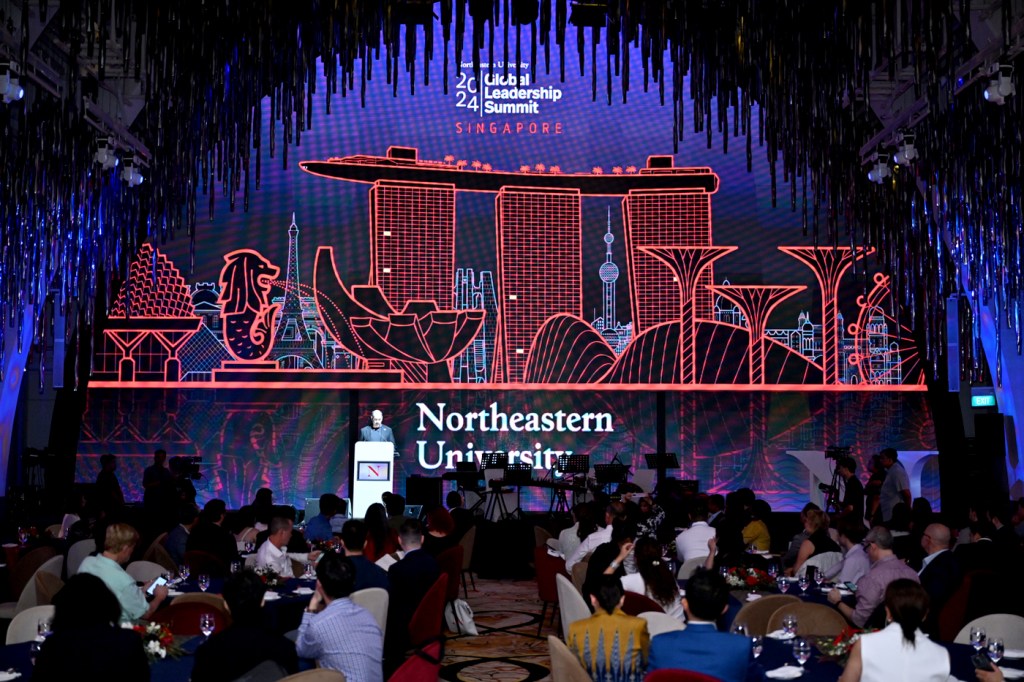
SINGAPORE — Northeastern President Joseph E. Aoun underscored the strategic significance of Southeast Asia in the global landscape as he welcomed hundreds to the university’s Global Leadership Summit in Singapore.
With a population of 700 million people representing almost 10% of the world’s population, Southeast Asia has great potential in emerging markets, Aoun said at the March event.
He drew comparisons between the region’s potential and Northeastern’s ethos, encouraging those attending the three-day event to “have interesting and meaningful conversations, and learn a lot about every opportunity that exists here in the region.”
“Where the world is heading now with AI, quantum computing and fusion technology, this government and country is planning for its economy just like Northeastern is planning for education in the future,” Aoun said about Singapore. Business, government and education leaders, as well as parents, students and alumni gathered in Singapore for a substantive lineup of discussions about timely global issues, as well as networking opportunities.
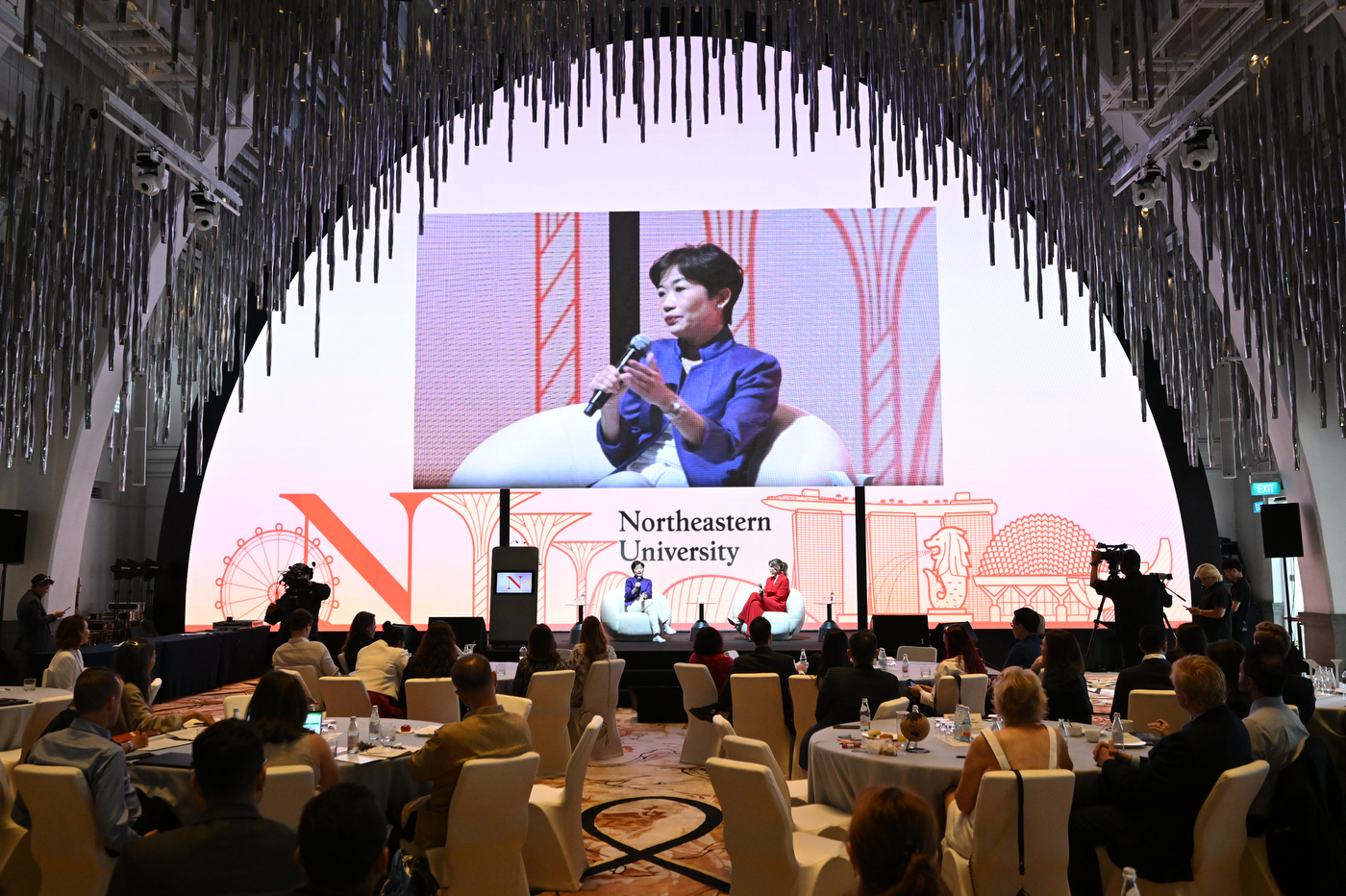
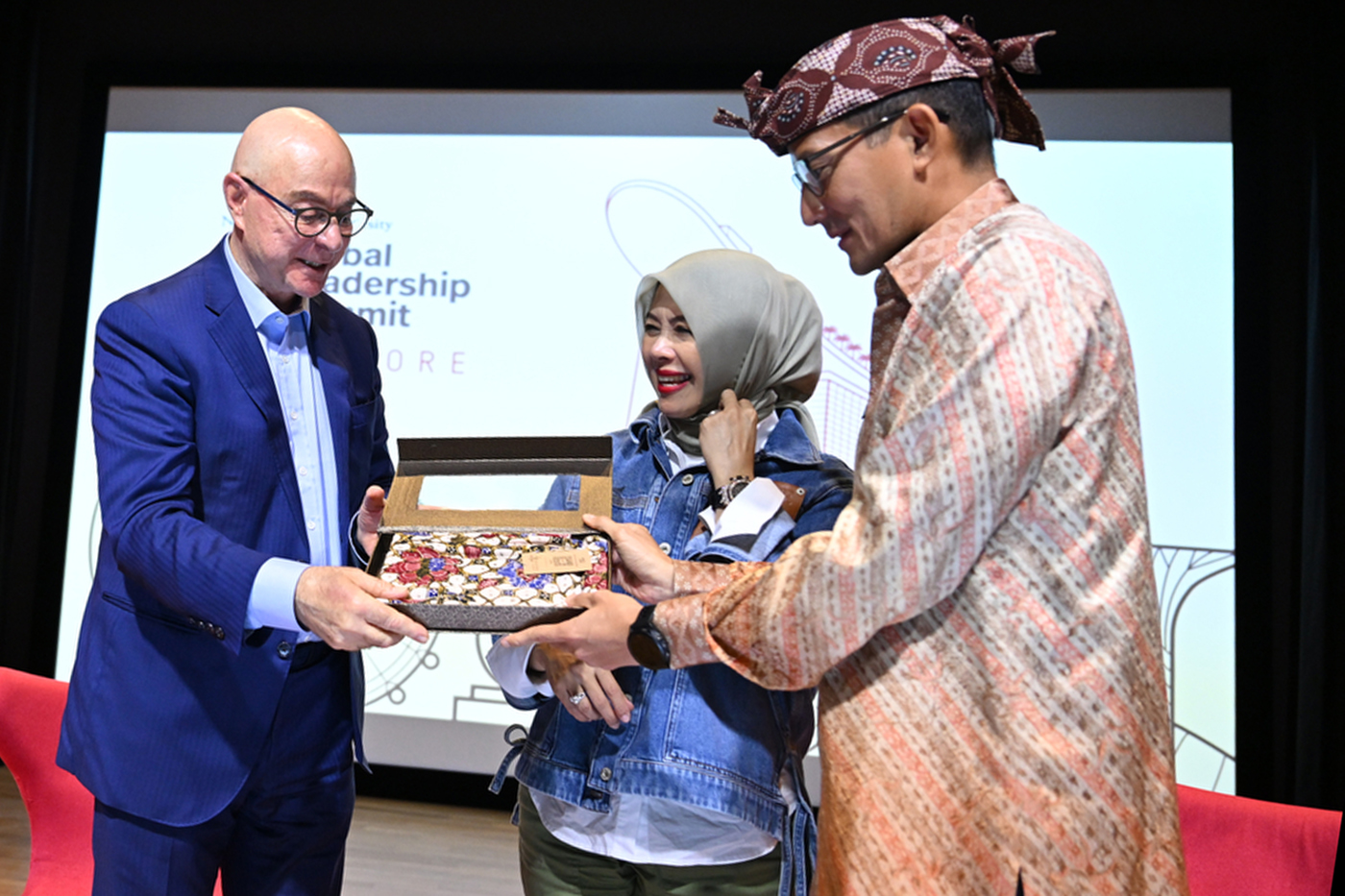
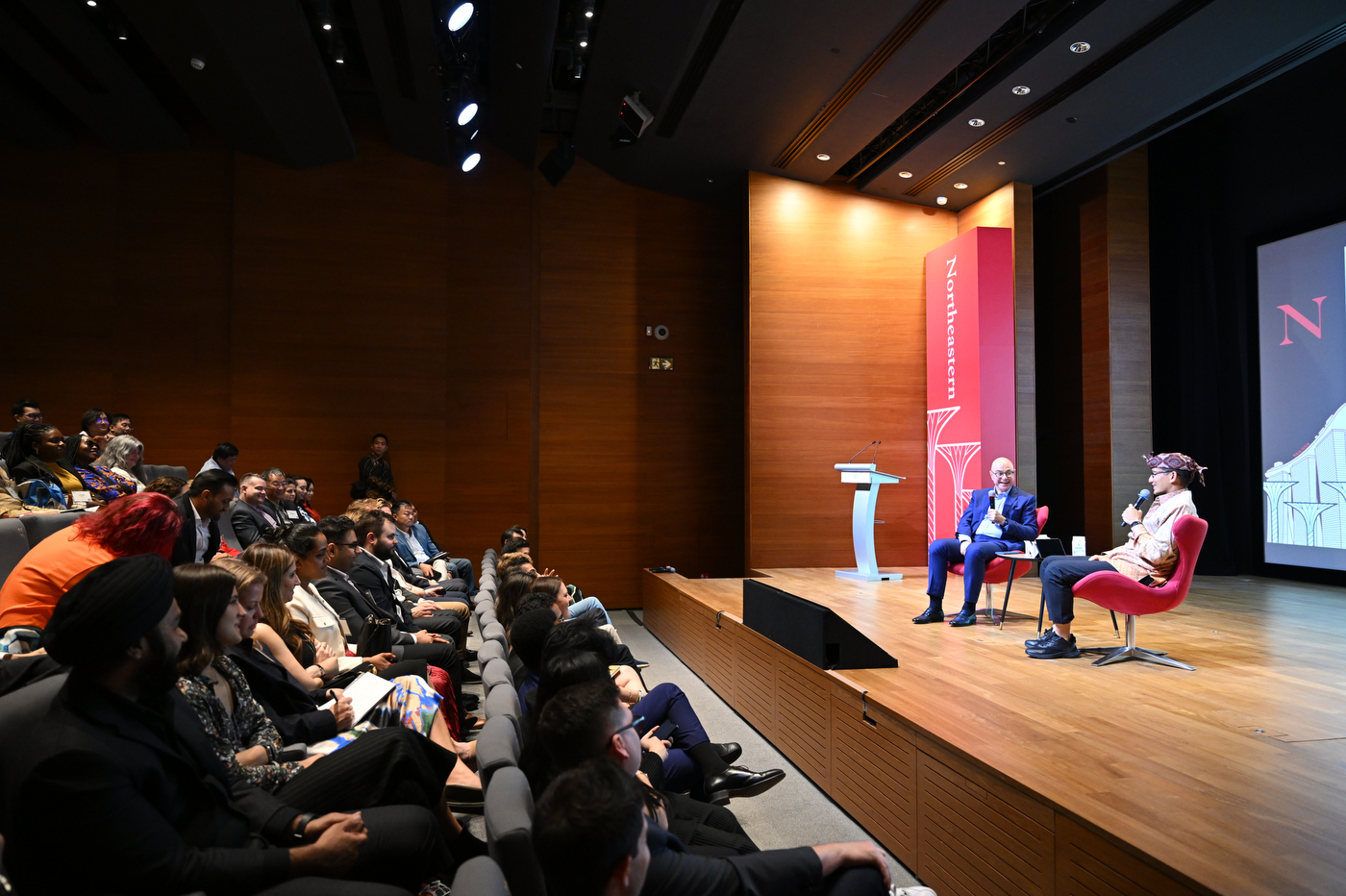
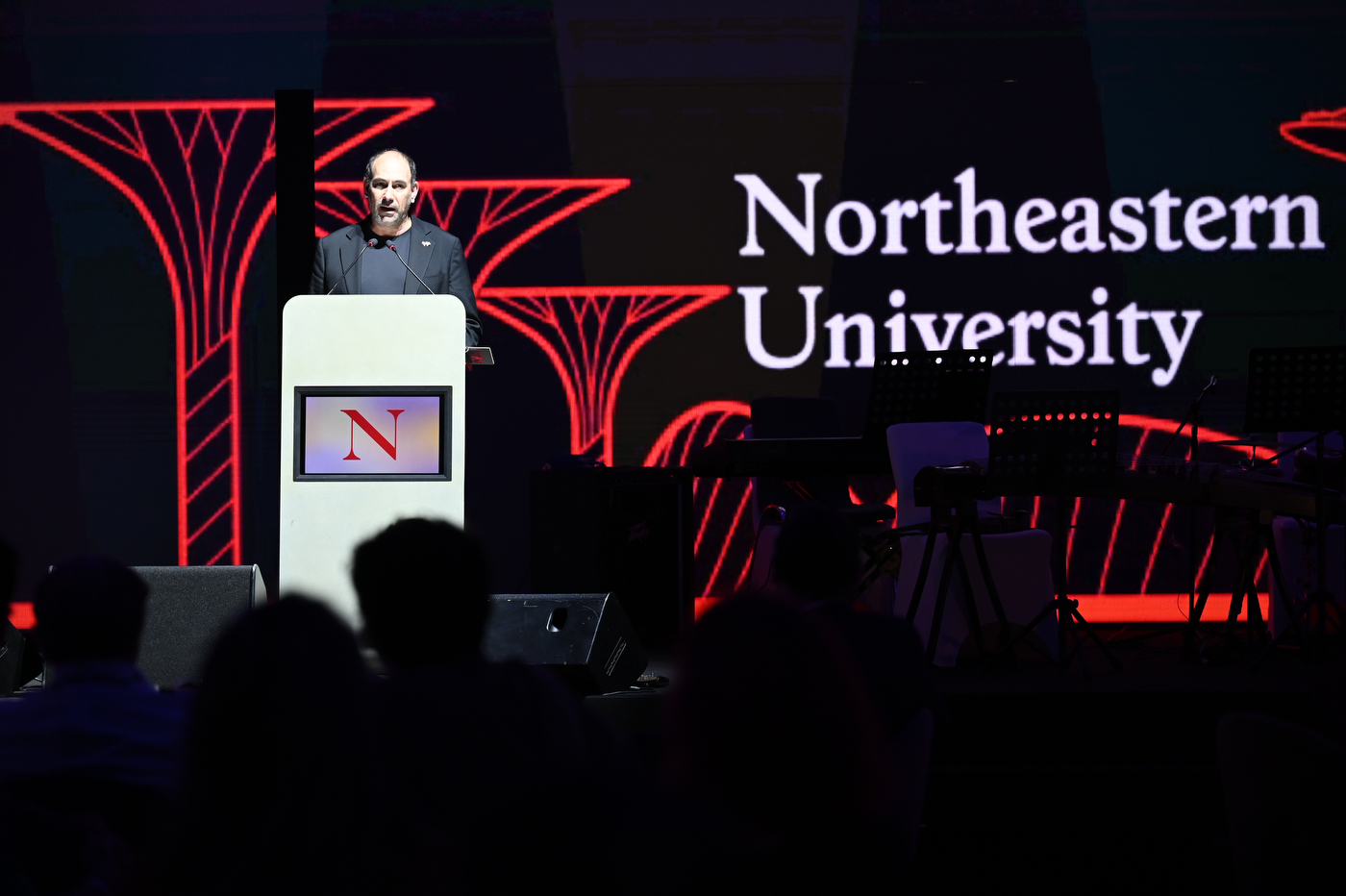
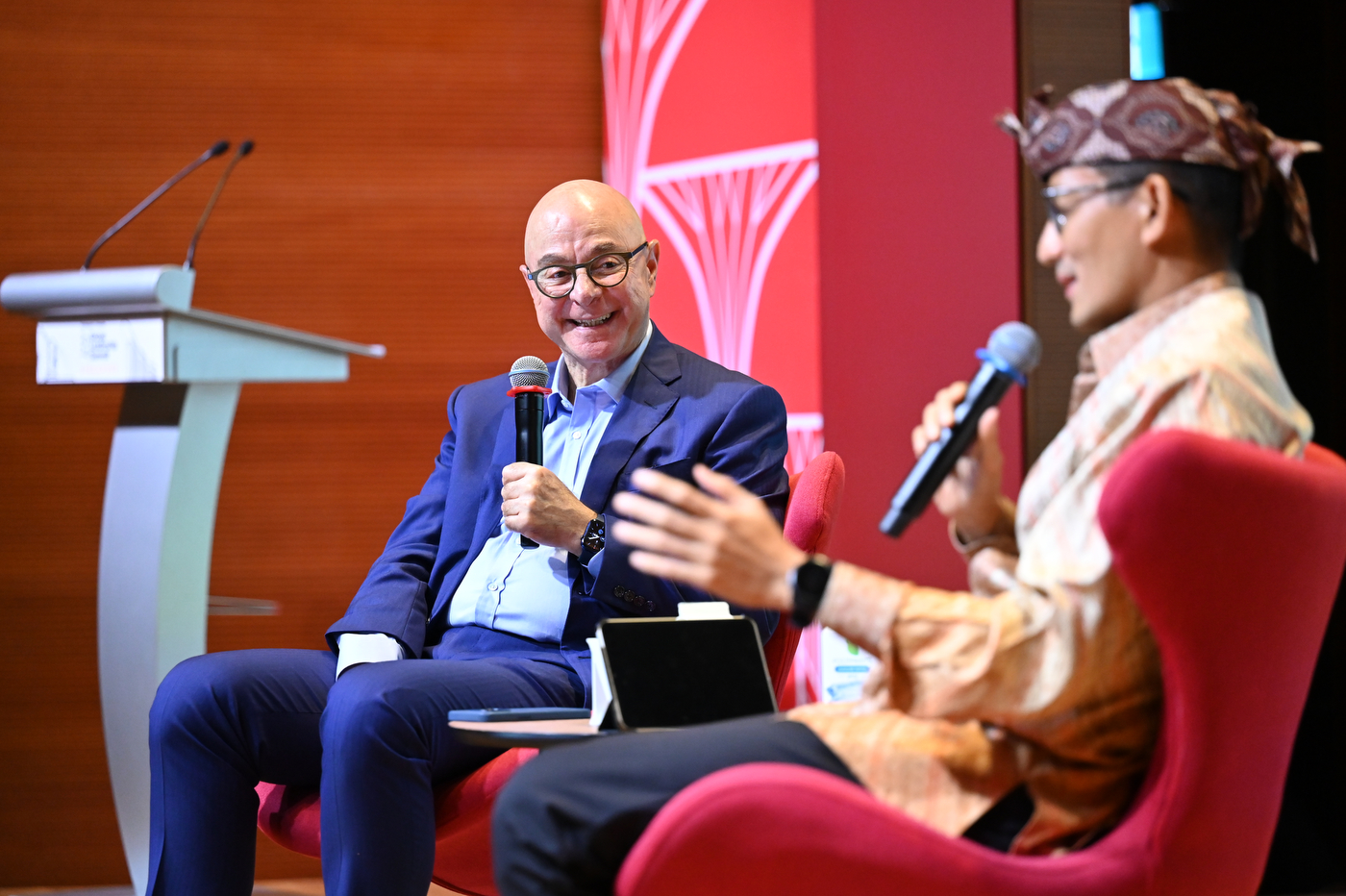
Diane Nishigaya MacGillivray, Northeastern’s senior vice president for university advancement, shared the experiences of women’s leadership and entrepreneurship and the joy in witnessing the growth and development of young individuals in various professional and personal roles.
“My job is particularly great in that I have had the privilege and the pleasure of watching and being part of the leadership journeys of so many young people throughout my career,” MacGillivray said.
She stressed the importance and impact of mentorship, and support in empowering women to take on leadership roles and foster a more inclusive and equitable environment. MacGillivray highlighted the university’s Women Who Empower program, an ongoing global initiative that includes a month-long celebration in honor of Women’s History Month in March with communities around the world.
The Singapore summit featured speakers and conversations addressing global challenges and imagining solutions. Participants discussed entrepreneurship, embracing AI, the Asian music industry, transforming health care through technology, global supply chain, economic development, innovation and creative growth, and sustainability.
Jonathan Kaplan, the U.S. ambassador to Singapore, praised the value of education that Northeastern exemplifies. He also commended the university for its academic excellence and building networks that enhance U.S.-Asia relations.
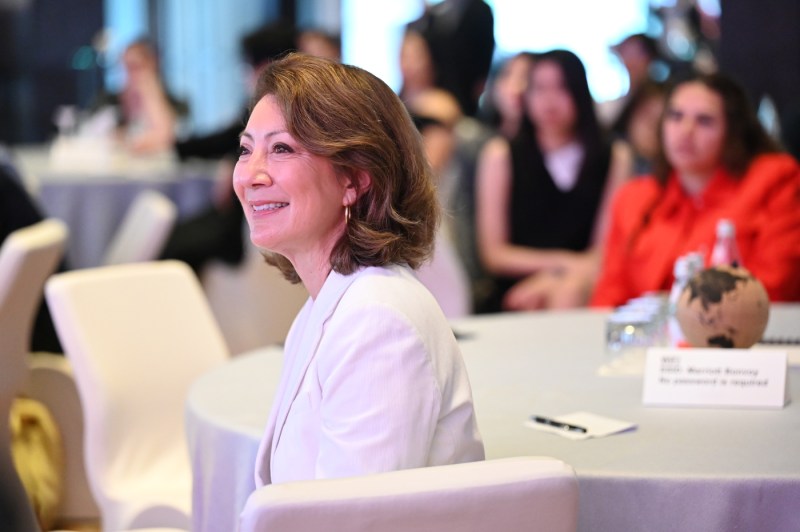
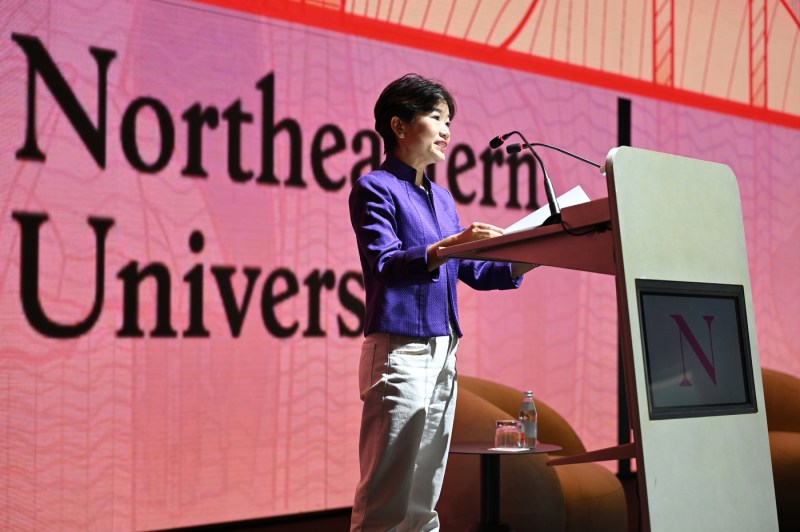
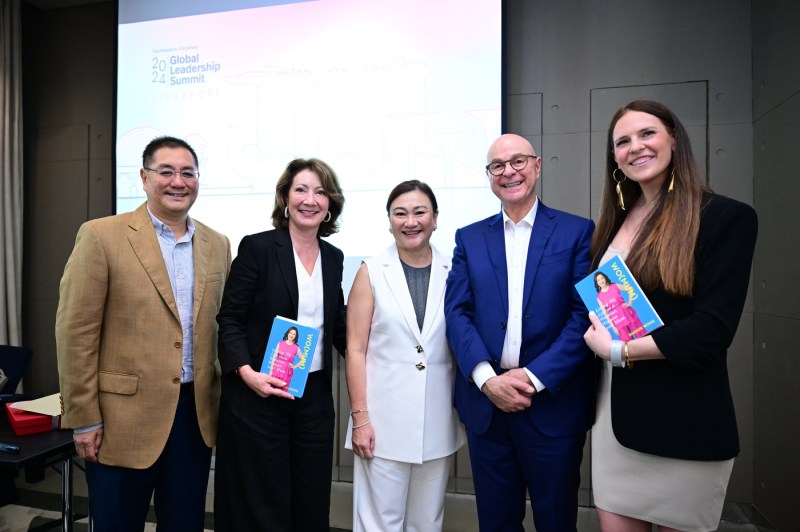
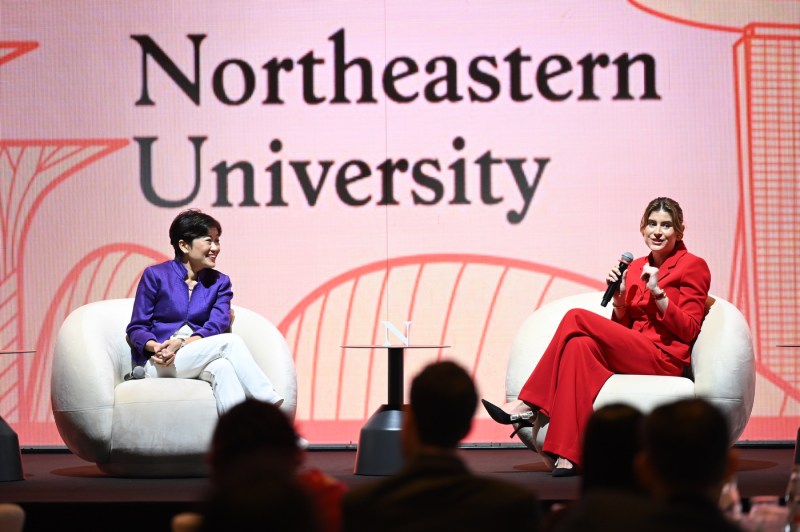
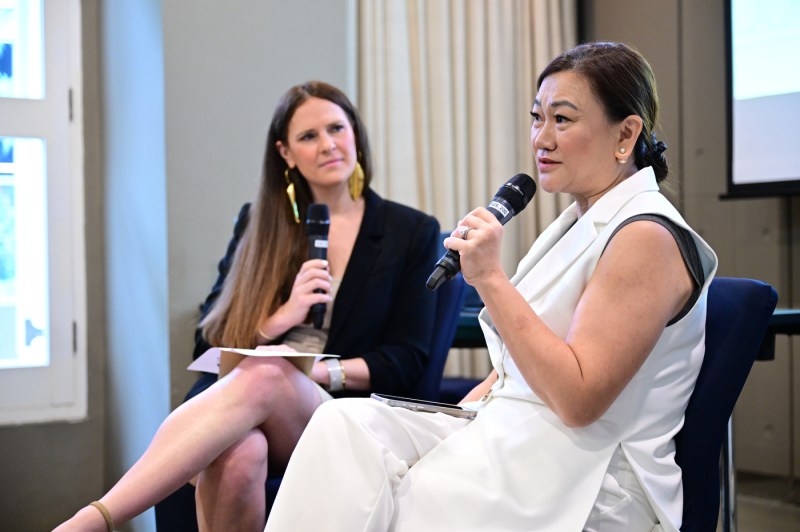
He spoke about Singapore’s commitment to higher education and its entrepreneurial spirit, noting the symbiotic relationship between the U.S. and Singapore in various domains, including economic prosperity, military training, cultural exchanges and technological innovation.
In his keynote address, Kaplan described this as a complicated time in global history. He touched upon various international challenges, including conflicts in Ukraine and the South China Sea, emphasizing the importance of unity against violence and hate.
Kaplan reflected on his transition from the private sector to becoming an ambassador, stressing the invaluable lessons he learned, and the continuous journey of education and feedback. He underscored the transformative power of an American education, citing his personal growth, opportunities and the forging of lasting friendships.
Praising Singapore’s entrepreneurial spirit and commitment to higher education, he noted the relationship between the U.S. and Singapore in various areas, including military training, cultural exchanges and technological innovation.
Kaplan also highlighted the vibrant educational ties, including the significant number of Singapore cabinet ministers educated in the U.S. He recounted the personal anecdotes shared by Singapore Prime Minister Lee Hsien Loong with Vice President Kamala Harris about Loong’s time studying in the U.S.
Kaplan encouraged continued collaboration between the countries and the vital role that plays in promoting a peaceful, interconnected world.
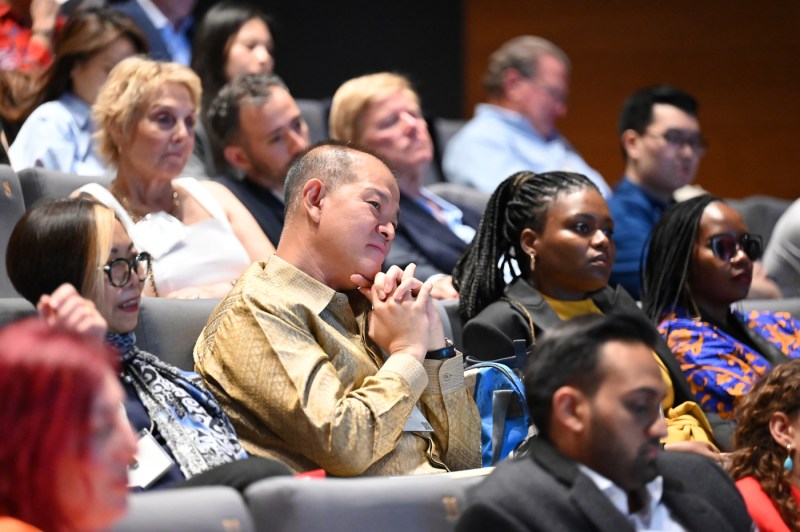
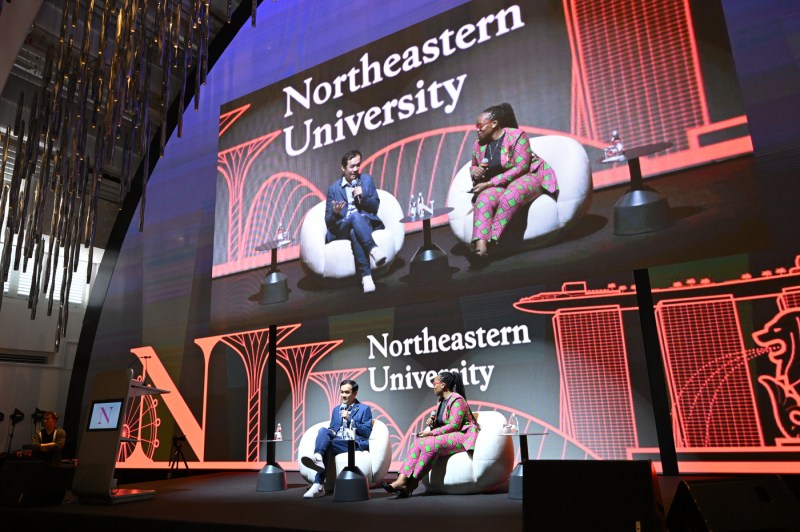
President Aoun and Sandiaga Uno discuss the creative economies of the future
During a fireside chat with Aoun, Sandiaga Uno, Indonesia’s minister of tourism and creative economy, shared his journey from struggling entrepreneur to a key figure in shaping Indonesia’s economic and creative landscape.
After graduating from college in the United States, Uno lived with his wife for more than five years in Singapore. He returned to Indonesia after the Asian financial upheaval of 1997 and 1998.
That’s when, Uno told Aoun, he started a financial consulting company and later Indonesia’s first private equity company that grew from nothing to over 30,000 employees with a value of over $2 billion in 15 years.
Uno, a marathoner, attributed his love of sports (running and basketball) and the speed, teamwork and endurance learned from competition as his main principles. His company, he told Aoun, is actively investing in e-sports and basketball to nurture a new generation of players.
Featured Posts
In his governmental role, Uno leverages his business insights to champion the digital economy and bolster entrepreneurs, providing them with the necessary support and mentorship to flourish.
Uno’s efforts in the creative economy are geared toward fostering a culture of innovation, adaptation, and collaboration, essential components for Indonesia’s vision of becoming a developed economy by 2045.
Uno admitted that there are challenges in changing the mind-set of government leaders.
“We need more entrepreneurial-minded professionals, including civil servants,” he told Aoun.
During their wide-ranging conversation, Uno also asked Aoun to help persuade his daughter to enroll in Northeastern’s graduate program. She graduated from the university with an undergraduate degree.
“Northeastern is a special place,” Uno said.
Founder of Motherswork established a business empire
In another session, Sharon Wong, founder and CEO of Motherswork, a leading mother-and-baby retail business based in Singapore, talked about her entrepreneurial spirit.
During the pandemic, she demonstrated her determination and resilience by introducing video sales calls to her staff as an innovation.
“We came out 30% stronger. It’s about tapping onto what is changing very quickly,” she said.
She also spoke about growing up in a remote rubber plantation in Malaysia, attending college overseas, and working various jobs while establishing a successful business empire.
Over the past 25 years, Wong has expanded her operations into 10 stores in China and two in Singapore, including the recent opening of a store in Vietnam.
The impact of Singapore’s digital transformation on its economy
Singapore’s digital transformation and proactive approach to investing in infrastructure were central themes in a speech delivered by Jacqueline Poh, managing director of the Singapore Economic Development Board.
Poh lauded many government initiatives, including Enterprise Singapore, a program that provides capital for local companies, strategic investments and AI. Improvements are also being made in health care, financial services, professional services, supply chain and logistics, she said.
Because of its small size, Singapore is able to embrace forward-thinking creative policies like its Zero Waste program and innovations like recycled NewWater and NewSand, which converts the ash from burnt waste into building materials.
Poh’s discussion also touched on Singapore’s unique lifelong-learning initiative, Skills Future Singapore.
He travels the globe to find the right people for his company
Jean-Pascal Tricoire recounted his appointment as CEO of Schneider Electric, a company that was founded in 1836. He was barely 40 years old when he was appointed.
Tired of traveling between Hong Kong and Paris, Tricoire broke up the traditional corporate structure by putting down roots in Hong Kong. That was 12 years ago.
Since then, he has canvassed the globe to find the right people and create the right environment for them.
“The rule is to hire the best people wherever they are born in the world,” he said.
Under Tricoire’s leadership, Schneider Electric has evolved into a technology giant hailed as a top-seven company in Europe with market capital of over $100 billion.
A strategic journey in the Asian music industry
In the domain of music, Calvin Wong shared his journey in the Asian music industry, blending passion with strategic acumen.
With 36 years of experience, he moved up the ranks to become CEO of Southeast of Universal Music Group. He provided a deep dive into the music industry’s evolution.
Wong explained how the transition from CDs and cassette recordings to today’s digital consumption models is an example of the challenges facing the industry, which has become a “fast-moving consumer good.”
Wong also said it’s important to protect artists’ revenue and ownership of their creative work.
“We want music to be enjoyed with every possible avenue as long as the artists are fairly compensated,” he said.
How to digitize a company for exponential growth
As the group executive chairman for his family business, Li & Fung, Spencer Fung is focused on creating the supply chain of the future.
To do this, Fung used a hockey analogy.
“You want to skate to where the puck is going to be, not where it is,” he told the audience.
Fung, a graduate of Northeastern’s D’Amore-Mckim School of Business, is helping his company’s customers navigate the digital economy. He pointed to Shein and Temu as examples of how businesses, even new ones, can experience exponential growth.
Shein is a Chinese-Singaporean fast fashion retailer, while Temu is a Chinese e-commerce marketplace.
“When you have a new business model, you can start having growth because it’s the right business model,” Fung said. “But when you digitize a new and correct business model for the time, you can have exponential growth.”
The potential of AI in augmenting health care delivery
On the topic of health care and technology, Nicholas Nash and Northeastern graduate Hoda Abou-Jamra explored the potential of AI in augmenting health care delivery, highlighting the interplay of technology and human expertise.
Abou-Jamra said she’s excited how emerging technology can help advance health care in Southeast Asia that is admittingly “old-fashioned” with many government regulations.
“AI in medicine will make the job of doctors better,” she said.
Nash reflected on the impact of AI and technology, advocating for a balanced perspective that recognizes AI as a tool, rather than replacement for humans.
“With AI in health care, high-precision AI can calculate in 3-D structures every possible protein in every possible organism. And that is helpful,” he said.








